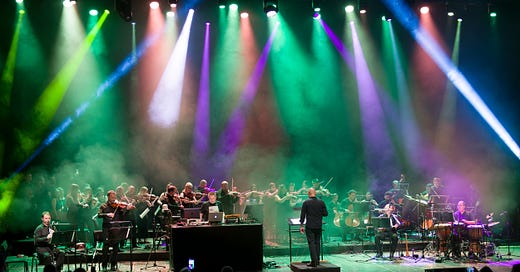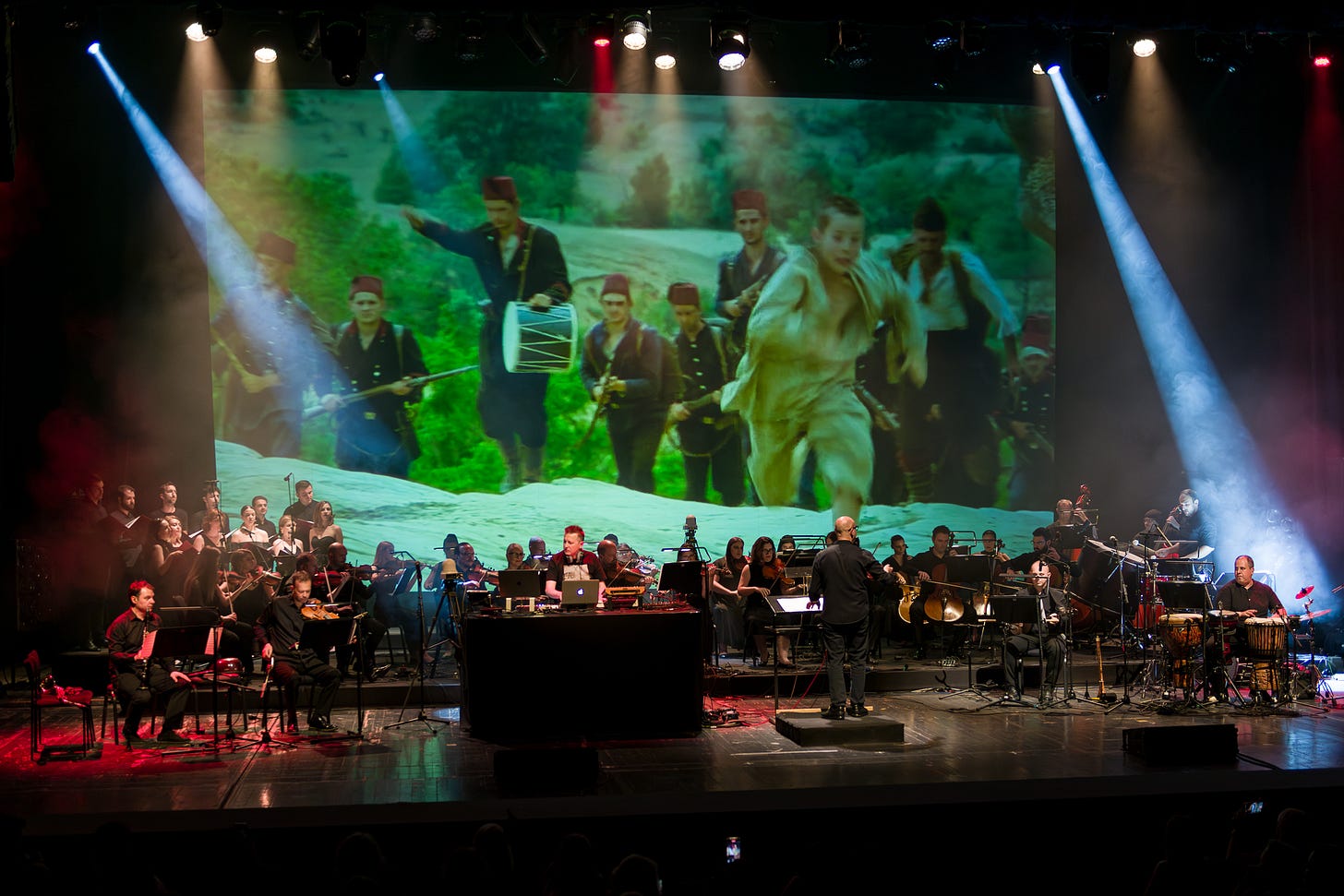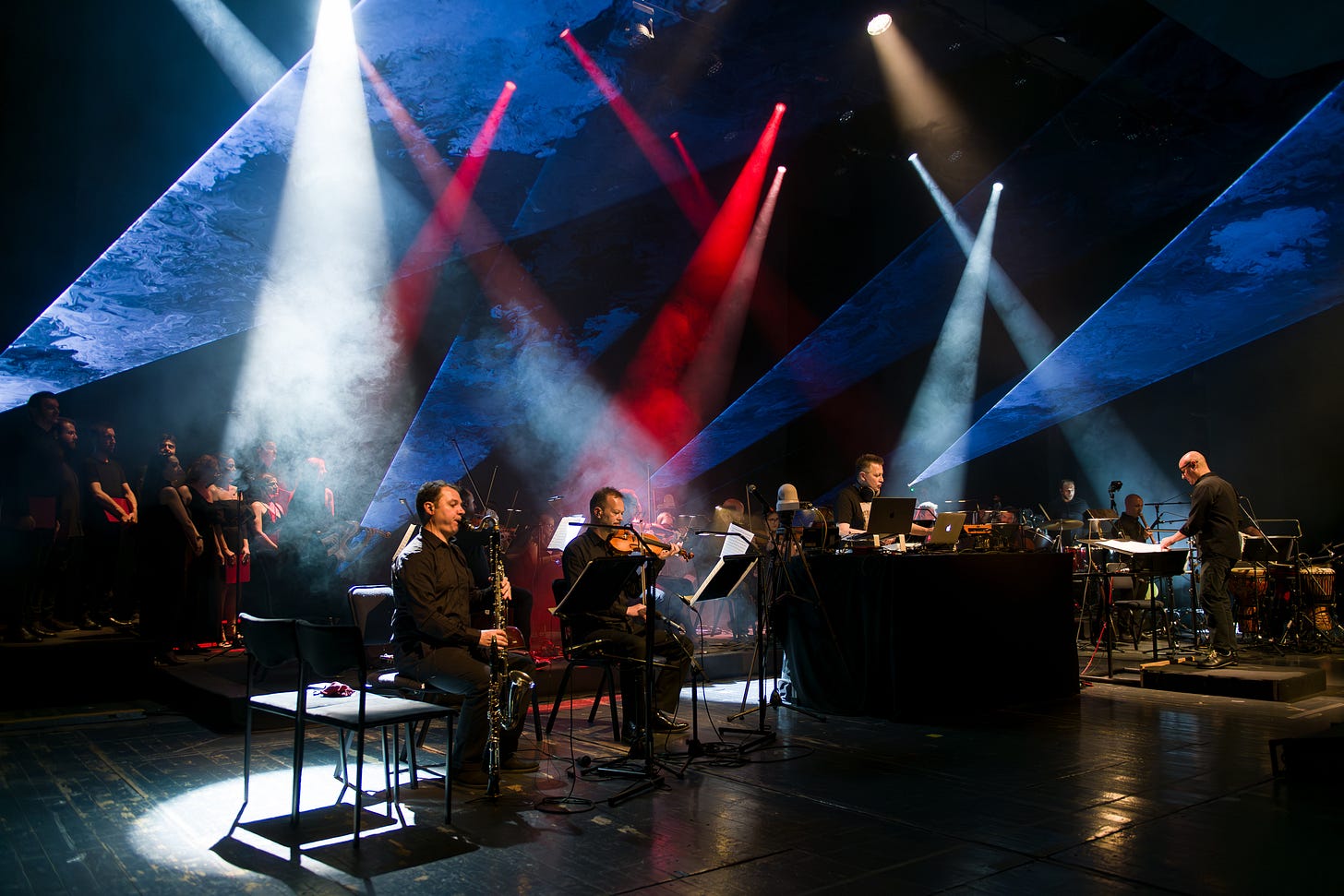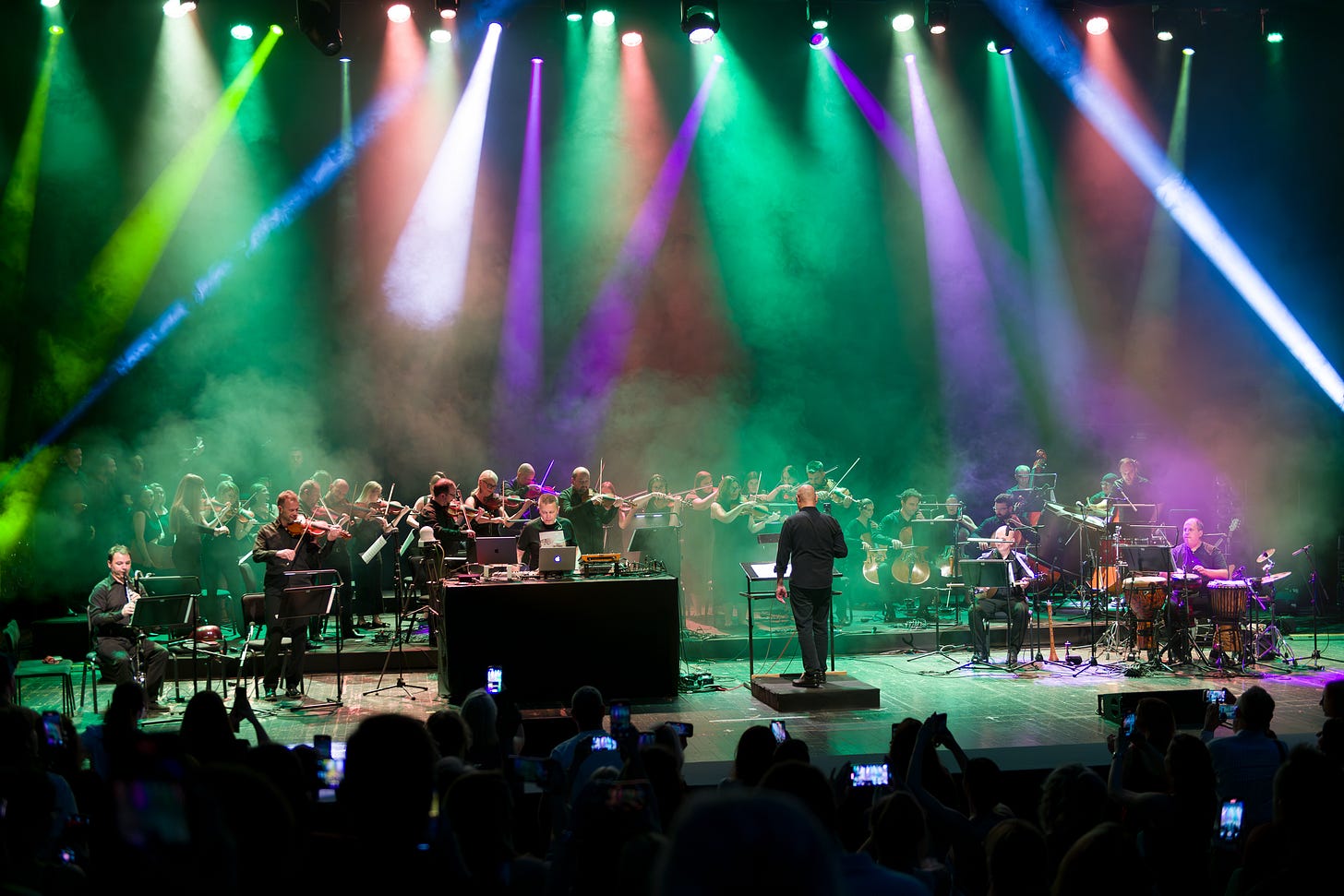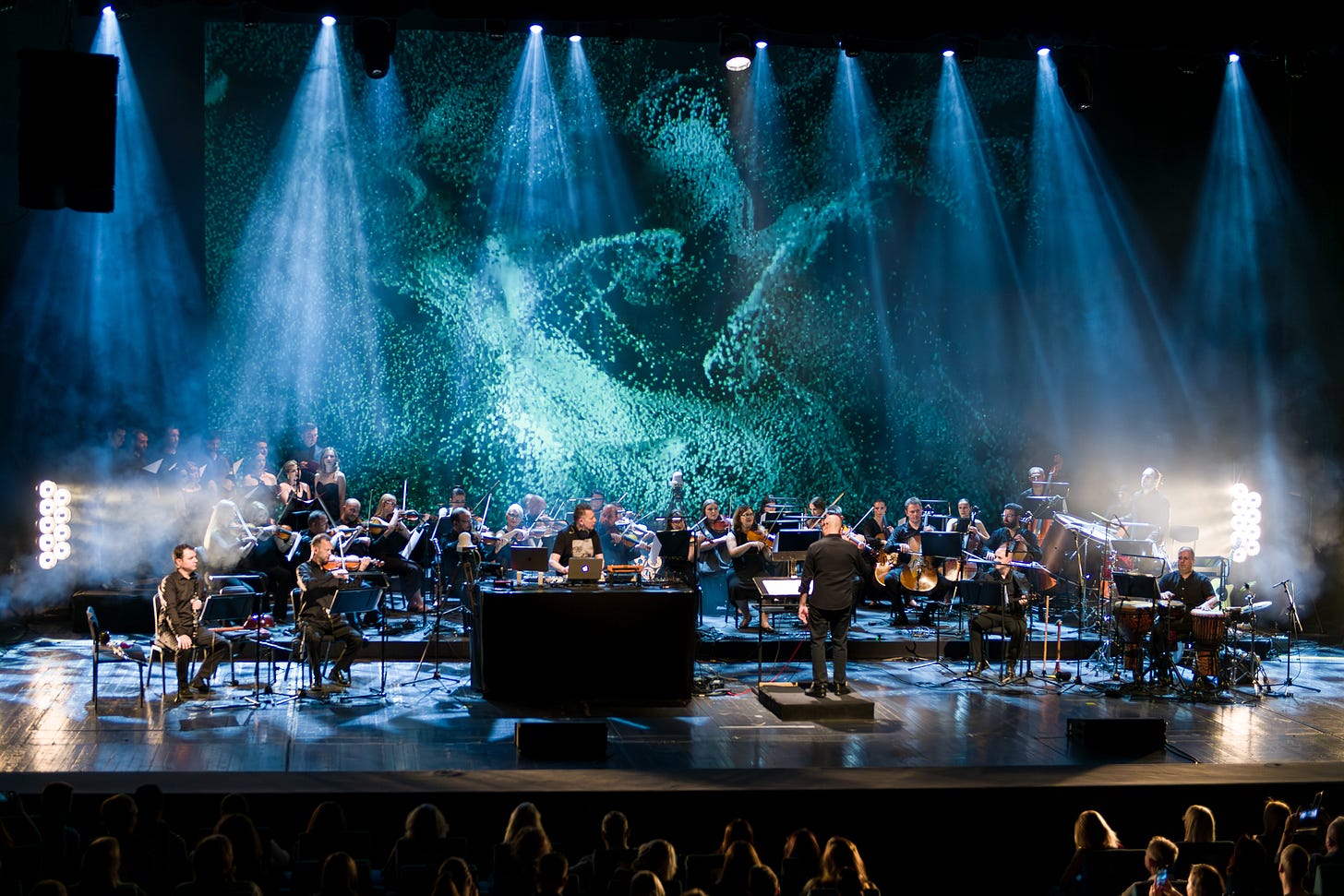From Screen to Stage: The Film Music of Kiril Džajkovski
Kiril Džajkovski’s Film Music Performed Live
Artist: Kiril Džajkovski
Venue: NOB
Location: Skopje, Macedonia
Date: June 15, 2025
Welcome to Vintage Cafe.
This is my personal corner for sharing music, books, films, travel, and the stories that stay with me. Every post is written with care, like a letter to a friend. Think of it as a slow conversation over coffee.
This June marks three years of writing, reflecting, and connecting with kindred spirits. To celebrate, I’m offering 20% off for new paid subscribers — a small thank-you and an invitation to join the inner circle.
Paid subscribers get access to bonus posts, behind-the-scenes reflections, and deeper dives into the music and moments I don’t share anywhere else. Whether you're reading everything or just stopping by, I’m truly glad you’re here.
Kiril Džajkovski marked a milestone this June with a unique event that celebrated 25 years of his work in film music. Held at the National Opera and Ballet in Skopje, the concert offered more than a retrospective — it was a masterfully curated evening that highlighted the breadth of his contribution to cinema through sound. Performed by a specially assembled symphonic orchestra, the program drew from a wide spectrum of films, weaving together moments into a cohesive musical narrative. It brought together orchestral grandeur, electronic sounds, ethnic flavors, and deep emotional resonance, all wrapped in evocative visual storytelling.
From the very beginning, the atmosphere was charged. A low, ominous rumble echoed behind the curtain before it slowly lifted, revealing the orchestra. The tribal drumming that opened the night—raw and earthy—immediately set the tone. Džajkovski entered center stage like a conductor of elements, stationed between his laptop rig and the large symphonic ensemble, exuding calm control. With dynamic lighting that matched the dramatic mood shifts of the music, the stage itself became a living, breathing organism.
The set began with the powerful “Chasing Lem” from Director Ivo Trajkov’s The Great Water, a thunderous piece driven by heavy drumming and the piercing call of the zurla. Tribal and cinematic, it immediately reminded the audience of Džajkovski’s unique ability to turn sonic textures into narrative arcs. Another theme from The Great Water followed this, its long intro blossoming into the heartfelt “Dream Box,” a personal favorite of mine. That waltz-like theme, understated yet stirring, filled the hall with a quiet intensity.
Dream Box Video
The program continued with selections from Dust (directed by Milcho Manchevski), notably the piece “The Dead Are Waiting.” It opened with a sense of wounded beauty—its emotional strings evoking loss, longing, and the unseen threads that bind the living to the dead. While the music carried a funereal tone, it was far from bleak. Džajkovski tempered the melancholy with strikingly memorable melodies, subtle time signature shifts, and a well-placed acoustic guitar sample that added warmth and texture. Each note felt like it was floating in from another dimension. With “Brothel Tango,” from the same movie, the energy shifted once more—sensual and cinematic.
Visually, the performance was stunning. Behind the musicians, a screen projected carefully chosen scenes from the films. These weren’t just backdrops—they were windows into the emotional worlds that Džajkovski’s music helped shape. The imagery never overshadowed the performance; instead, it added depth, context, and a layer of memory to each composition.
All of the films featured in the concert deal with heavy and complex themes—war, memory, trauma, death, love, and redemption- and Džajkovski’s music always adds depth to those stories. The Ballad of Piargy was a great example of that. It marked Džajkovski’s second collaboration with director Ivo Trajkov, and his music perfectly matches the haunting, unsettling tone of the film. The film touches on themes like female subjugation, the abuse of power, and the darkness hiding beneath a seemingly traditional village life. The score—with its ambient layers, strings, and touches of minimalist electronica—created a sense of cold beauty and alienation, echoing the emotional weight of the story.
The ethereal turned earthbound again with Willow, where heavy percussion, oriental inflections, and a jaw-dropping ethnic violin solo by Vladimir Krstev took center stage. Here, Džajkovski’s trademark synthesis of East and West shone—his skill in blending electronica with Macedonian folk idioms remains unmatched.
When the familiar theme from Balcancan began, it brought a smile — its playful, unmistakable melody instantly recalling the film’s comedic tone. On the other hand, when The Third Half followed, it evoked a Morricone-like elegance in its melodic lines, showing Džajkovski’s classical training and cinematic intuition. Then came the stirring “Balkan Is Not Dead,” where a choir and bells expanded the sound into something sacred and solemn.
It was a moment of collective stillness in the hall, followed by the deeply moving “More Sokol Pie” from The Third Half, rendered with both restraint and emotional weight.
The evening drew to a close with dance tracks such as “Global Zurla” and the unsettling yet rhythmic and boisterous “Primitive Science,” which is used for the end credits for the Dust movie. The final piece, “Jungle Shadow,” prompted a collective release with people rising to their feet, overtaken by rhythm, emotion, and admiration.
Throughout the performance, conductor Džijan Emin masterfully led the orchestra, ensuring fluid transitions between pieces and dynamics. The synergy between Kiril, the orchestra, and the ensemble of musicians—including percussionists Ratko Dautovski, Antonie Veskovski, clarinet and saxophone player Ivan Ivanov, and Andrej Trajkovski —was palpable. This wasn’t just a concert; it was a full-bodied experience.
Kiril Džajkovski’s body of work reveals a composer who understands both the heartbeat of cinema and the rhythm of tradition. His ability to integrate neoclassical grandeur, electronic minimalism, dance beats, and Balkan folklore into a seamless whole is something few achieve. Standing at the crossroads of east and west, past and present, he is a true sonic cartographer.
This concert was not only a showcase of film music; it was a sonic biography of a composer, of a region, and of the stories that bind us. It was an evening that reminded us that great film music doesn't merely accompany images—it gives them breath.
Photo Credits: Kiro Galevski


